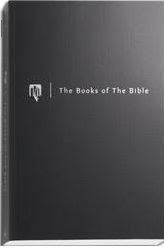If 生意 is to be true to its original meaning, would it not be appropriate to measure good business as one that does not only make money, it brings meaning to the participants of the business relationship. Biblically, working hard and being fruitful in our work is an honourable endeavour. Jesus even warns us to count the cost, and measure our resources before we embark upon major projects like building a tall tower. Yet, the statistics compiled (referred to by Stephen Covey's The Eighth Habit) by Harris Poll paints a grim picture of the reality of the business world.
- Only 37% of workers clearly understood what their organization is trying to do
- Only 20% are enthusiastic about their organizational goals
- Only 20% see the link between their work and organizational goals
- Only half are satisfied with their work at the end of each week
- Only 15% sees their organization as a place of high trust
- Only 17% felt their place of work supports open communications
- Only 10% felt that people are held accountable by the organization for results
- Only 20% fully trusts the organization they work for
- Only 13% have high-trust working relationship
Sad picture, isn't it? It makes me wonder why. If the statistics are correct, then more than 75% of the workers surveyed are pathetically doing meaningless work! What happened to the 'growth of meaning?' Covey gives a rather persuasive diagnosis and divides the human person into four parts: body; heart; mind and spirit. The 'body' represents being paid fair wages. The 'heart' represents being treated kindly and respectably as an employee. The 'mind' represents the creativity employed in the work. The 'spirit' represents the meaning behind the work. This is a neat and tidy description which will whet the typical Western mind trained in systematic thought. My question would be: "Can a person be neatly divided into four parts?" I will agree that for pedagogical reasons, such an approach is a helpful beginning. However, it is only for the purpose of a framework of understanding. He goes on to define the greatest need for people to go beyond becoming effective in whatever they do, into becoming 'great' people once they have found their voice. After finding their voice, they ought to help others find their voice as well. Bear in mind, that Covey is talking mainly about principles of life and it is another "if it works, use it" contribution to the bludgeoning stacks of how-to books in management. He identifies a problem and prescribes a solution to it. Using delightful quotes and captivating anecdotes, it is no wonder this book is becoming a bestseller in many ways. However, its impact is not as widely felt as his first book about the Seven Habits of Highly Effective People.
Darrell Cosden suggests another model, seeing work in terms of three interrelated dimensions: Instrumental, Relational and Ontological. There needed to be an eschatological thrust in all of these dimensions, argues Cosden. The instrumental refers to using work as a means to an end. The relational being the motivational aspect while the ontological means the personal human aspect, or the state of being. All three are not separated. I feel that Cosden's model is more integrative than Covey's. Covey's framework is compelling, from an understanding point of view, but I feel that while it is easy to break them up, putting them back together is no simple feat. Covey did mention a small reference to God in his 400-over pages of exciting reading. He quotes an anonymous source:
I sought my God and my God I could not find.On the other hand, Cosden's model does not require one to break them up, but argues for a theology of work that is integrative.
I sought my soul and my soul eluded me.
I sought my brother to serve him in his need,
and I found all three - my God, my soul and thee. (Stephen Covey, The Eighth Habit, NY: Free Press, 2004, 314)
Human work is a transformative activity essentially consisting of dynamically interrelated instrumental, relational, and ontological dimensions: whereby, along with work being an end in itself, the worker's and others' needs are providentially met; believers' sanctification is occasioned; and workers express, explore and develop their humanness while building up their natural, social and cultural environments thereby contributing protectively and productively to the order of this world and the one to come. (Darrell Cosden, A Theology of Work, Paternoster, 2004, 178-9)While Cosden's monograph may not have been as financially successful compared to Covey's big fame and reputed name, his theology of work is more encompassing and meaningful for a Christian. He reminds us that work done merely as an instrumental tool is at best incomplete. There is a need to derive hope by looking forward to the future. Don't get me wrong. I like Covey's 8th Habit. It contains lots of helpful tips for living and helps us go beyond the surface level of body-mind-heart into the spirit domain. However, it is too 'neat' for my comfort, that life can be so easily divided into body-mind-heart-spirit. Cosden's model on the other hand, does not deny the instrumental and relational role, and uses the ontological role as one that 'transcends' the two. It is all about being human. That is exactly right. The best way to grow in meaning (生意) is to know oneself more truly. Alas, the world constantly ought to be reminded of the following in order to build and help one another find meaning in their work. The following is a list of seven helpful checkpoints in our work-life, to make sure that our means must measure up to whatever ends we seek. We must avoid the following (saying attributed to Gandhi):
- Wealth without work
- Pleasure without conscience
- Knowledge without character
- Commerce without morality
- Science without humanity
- Worship without sacrifice
- Politics without principle
ks


